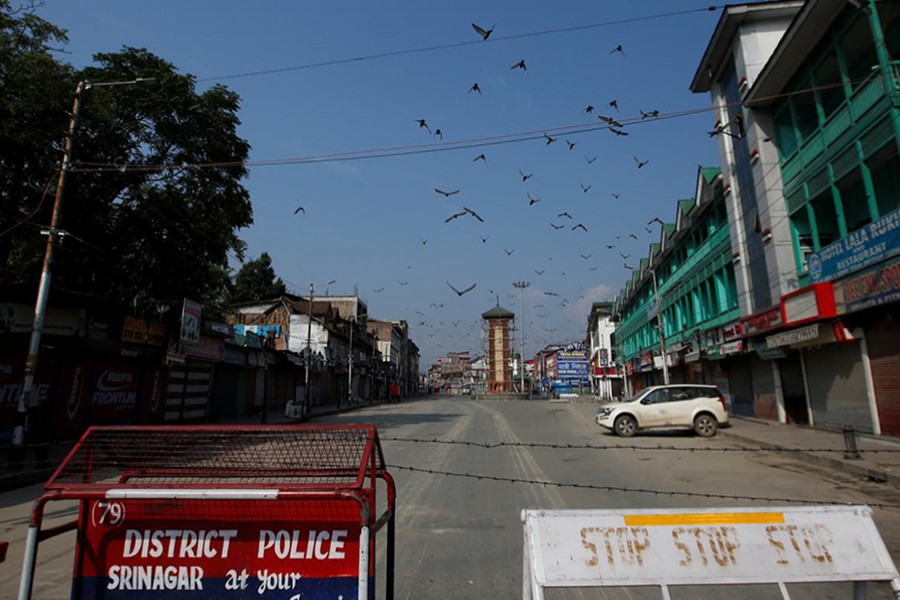The Indian Supreme Court on Wednesday decided to examine the legal challenge against the Centre’s decision to abrogate Article 370, which gave special status to Jammu and Kashmir, and referred the matter to a five-judge constitution bench.
The apex court issued notices to the Centre and Jammu and Kashmir administration on a batch of pleas challenging the presidential order by which Article 370 was abrogated.
In addition, the court also allowed CPI (M) general secretary Sitaram Yechury to visit J&K to meet party colleague Md Yusuf Tarigami, who had been detained by the authorities.
In the matter of a plea seeking removal of restrictions imposed on journalists, filed by Anuradha Bhasin, Executive Editor of Kashmir Times, the Supreme Court sought responses from the Centre and Jammu and Kashmir administration, reports The Hindu.
“Cross-border repercussion”
A bench headed by Chief Justice Ranjan Gogoi was not in agreement with the Centre that there was no need for issuance of notice in the matter as Attorney General K K Venugopal and Solicitor General were marking their presence in the court.
“We will refer the matter to a five-judge Constitution bench”, the bench also comprising justices S A Bobde and S A Nazeer said while not accepting the arguments that the issuance of notice will have a “cross-border repercussion“.
The Attorney General said whatever is being said by this court is sent before the United Nations.
As the counsel appearing for both sides were involved in arguments and counter-arguments, the bench said, “We know what to do, we have passed the order, we are not going to change”.
While the petition against the scrapping of Article 370 has been filed by advocate M L Sharma, National Conference MPs Mohd Akbar Lone and Justice (rtd) Hasnain Masoodi have challenged the changes made in the constitutional status of Jammu and Kashmir by the Centre.
They have also been joined by former IAS officer Shah Faesal and former student leader Shehla Rashid and several others.
All the matters relating to Article 370 and subsequent developments are listed for hearing before a Bench headed by Chief Justice Ranjan Gogoi.


